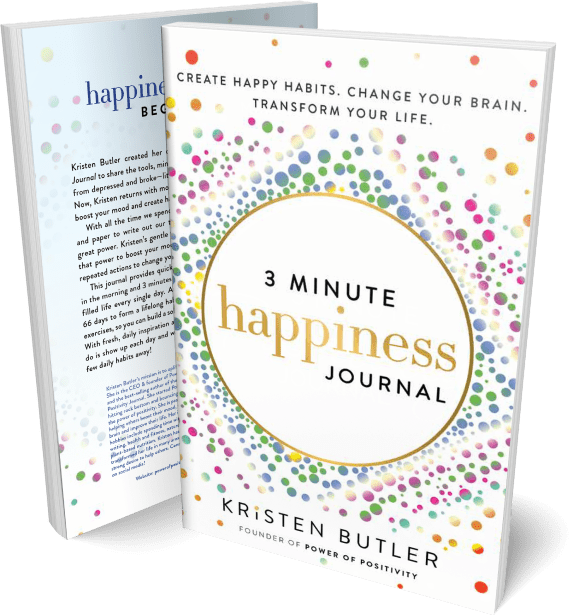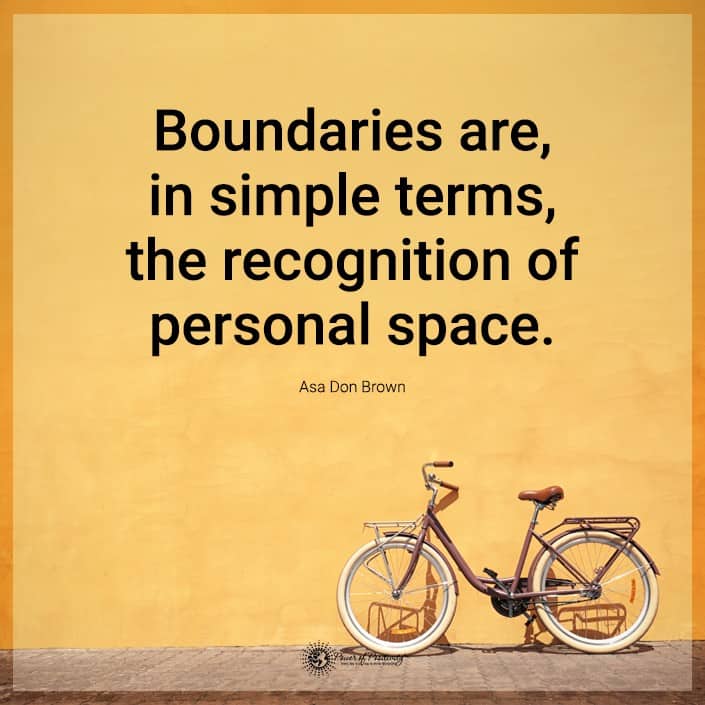Do any of these manipulative phrases sound familiar?
Understanding the words exchanged is as crucial as recognizing the emotions involved. While love can be genuinely profound and transformative, it’s important to be aware of the darker side of romance—manipulation. Romantic manipulation, a subtle yet powerful form of emotional influence, often goes unnoticed until one feels the impact of the manipulative impacts. This article aims to illuminate this shadowy aspect of relationships by exploring the common phrases a romantic manipulator uses.
Manipulators often use specific phrases and language patterns to create deep emotional bonds, instilling a sense of uniqueness, indispensability, and intense emotional dependency. These phrases are seemingly harmless and flattering on the surface. Still, they are tools for emotional control and psychological influence. Understanding these phrases is not just about caution; it’s about empowering yourself to recognize the difference between healthy affection and the intentions of a romantic manipulator.
As we look into these phrases, remember: this is not about fostering distrust in relationships or painting all romantic gestures with a broad brush of suspicion. It’s about developing an understanding and awareness that enables you to distinguish between genuine affection and manipulation. This knowledge is vital for protecting your emotional well-being and ensuring your relationships are based on mutual respect and genuine love.
15 Phrases You Will Hear From a Romantic Manipulator
1 – “You’re Not Like Anyone I’ve Ever Met Before”
This phrase is a classic in the playbook of a romantic manipulator. When someone tells you, “You’re not like anyone I’ve ever met before,” it can feel incredibly flattering. It’s a statement that sets you apart, making you feel unique and special. This phrase plays into the natural human longing to be seen as distinct and different from others. It creates an immediate sense of uniqueness in your relationship with the speaker, suggesting that what you have is rare and extraordinary.
The desire to feel special is a fundamental human need. We all want to believe that there’s something about us that is uniquely appreciated and valued by others. When a manipulator uses this phrase, they’re tapping into this need. By making you feel one-of-a-kind, they can create a strong emotional bond. This bond, however, is based not on genuine affection but on exploiting your desire to be seen as unique. The danger lies in the fact that this perceived uniqueness can blind you to potential red flags in the relationship, as you might feel too special to question the intentions behind the words.
2 – “I’ve Never Felt This Way About Someone”
Hearing someone say, “I’ve never felt this way about someone,” can be incredibly heartwarming and reassuring. This phrase implies a level of emotional intensity and connection that is unparalleled. It suggests that what you share is special and unprecedented in the manipulator’s experience. Such a statement can make you feel your relationship is unique, deeply romantic, and profound.
This phrase plays into the desire for deep emotional connection and relationship validation. Everyone wants to feel that their relationship is not just ordinary but uniquely meaningful. By declaring their extraordinary feelings, the manipulator can make you feel deeply connected to them. It’s a way of fast-tracking emotional intimacy and forging a seemingly deep connection. However, the underlying intent can be quickly establishing a bond that makes you more susceptible to further manipulation. It preys on the human desire for a special, once-in-a-lifetime kind of love, potentially overlooking the natural pace at which genuine intimacy and understanding develop.
3 – “You Understand Me Better Than Anyone”
When a manipulative person tells you, “You understand me better than anyone,” it can create a powerful sense of connection and importance. This phrase acknowledges your ability to empathize and connect deeply with the speaker. It suggests that you have a unique insight into their personality and emotions, which nobody else possesses. This phrase can be particularly alluring because it places you in a special role in their life.
This phrase taps into the human need for understanding and empathy in relationships. Being understood and appreciated for this understanding is a powerful emotional driver. It makes you feel valuable and irreplaceable. However, manipulators use this phrase to create an illusion of deep emotional intimacy. They can foster a sense of obligation and attachment by making you believe you understand them uniquely. This tactic can make you more likely to invest emotionally in the relationship, driven by the belief that your connection is based on profound mutual understanding.
4 – “I Can’t Imagine My Life Without You”
When someone says, “I can’t imagine my life without you,” it feels deeply romantic. This phrase conveys a sense of indispensability in the speaker’s life, placing you at the center of their world. It suggests that your presence is so crucial that their life would be unimaginable or significantly lesser without you. This kind of statement can be incredibly affirming, making you feel deeply valued and important.
However, this phrase also taps into deeper, more complex emotions. It subtly plays on the fear of loneliness and the innate human desire to be important in someone else’s life. The idea that someone cannot envision a life without you may initially seem flattering. However, it can also create a heavy sense of responsibility for the other person’s happiness and well-being. This feeling can lead to a fear of abandoning them, making it difficult to address issues or leave the relationship if it turns unhealthy.
5 – “No One Has Ever Made Me So Happy”
“No one has ever made me so happy” is a phrase that often has a weighty implication. On the surface, it’s a grand compliment, suggesting that you bring unparalleled joy to someone’s life. It’s meant to make you feel like a vital source of happiness for the person saying it, elevating your role in their emotional world.
However, this statement places a significant emotional responsibility on you. It suggests that the happiness of the manipulator is largely, if not entirely, dependent on you. This dependency can be a heavy burden, as it implies that any changes in the relationship, or your ability to make them happy, could drastically affect their emotional state. It can lead to feeling trapped in the role of a happiness provider, making it challenging to express your own needs or concerns without feeling guilty for potentially disrupting their happiness.
6 – “You’re the Only One Who Can Help Me”
The phrase “You’re the only one who can help me” appeals to your empathy and compassion. It creates a sense of duty and obligation, suggesting that you have a unique ability to assist or ‘save’ the romantic manipulator. Hearing this can make you feel uniquely capable and necessary, reinforcing your role as their supporter or savior.
This appeal plays into the human instinct to help and be needed. Most people find satisfaction in being able to help others, especially those they care about. However, when this need is manipulated, it can lead to an unbalanced relationship dynamic. You may feel a constant pressure to support and solve problems for the manipulative person, often at the expense of your own needs and well-being. This dynamic can be emotionally draining and can create an unhealthy dependency, where your self-worth and the relationship’s value are tied to your ability to help or ‘fix’ things for your partner.
7 – “I Was Waiting for Someone Like You”
When a manipulative partner says, “I was waiting for someone like you,” it can feel like a line from a fairy tale. This phrase suggests that your arrival in the person’s life was anticipated, almost as if it were destined or fated. It implies that out of everyone, you were the one they were waiting for. This idea of destiny or fate in the relationship can be incredibly romantic and alluring. It makes the relationship feel like part of a grander design, adding a layer of magic and significance to your connection.
However, romanticizing destiny and preordained connections has a complex psychological underpinning. While believing that fate brings people together is comforting, this notion can create unrealistic expectations. Believing that a relationship is ‘meant to be’ can make it hard to assess compatibility and issues that arise objectively. It might lead to overlooking important red flags under the guise of destiny. This belief in fate can also make leaving or questioning the relationship harder, as it challenges the fundamental idea that you were ‘destined’ to be together.
8 – “You Make Me Want to Be a Better Person”
Hearing “You make me want to be a better person” can be heartening and flattering. This phrase indicates that your influence inspires positive change or growth in the speaker. It suggests that your presence in their life is so transformative that it motivates them to improve themselves. On the surface, it’s a testament to your positive impact on their life.
Yet, this phrase can also be manipulative. It subtly places the responsibility for the person’s improvement or growth on your shoulders. While it’s rewarding to be a positive influence, this statement can create pressure to maintain that role and continue inspiring them, potentially at the expense of your own needs. It can also imply that if the relationship falters, so too will their journey to becoming a better person, anchoring the growth of the manipulator to your presence and support.
9 – “I Trust You More Than Anyone”
“I trust you more than anyone” is a powerful statement. Trust is the foundational element of any healthy relationship, and hearing this can make you feel incredibly valued and respected. It suggests a deep confidence level in your character and judgment, establishing a bond of trust essential for any close relationship.
However, quickly establishing such a deep trust can be a psychological strategy by a manipulative person. While trust is essential, it develops over time as you get to know and understand each other. Accelerating this process can create an intense bond that might not be based on genuine understanding or mutual experiences. It can put you in a position where you feel an overwhelming obligation to live up to this bestowed trust. In manipulative contexts, this rapid trust-building can be a tactic to lower defenses, making you more open and vulnerable to influence and control.
10 – “I’ve Shared Things With You I’ve Never Told Anyone”
When a manipulative person confides in you, saying, “I’ve shared things with you I’ve never told anyone,” it creates a profound sense of closeness. This statement implies that you hold a unique place in their life, entrusted with secrets and deeply personal experiences. This sharing fosters an exclusive emotional bond between you and the speaker as you become a keeper of their hidden truths and stories.
The act of sharing secrets or personal information has a significant psychological impact. It creates a sense of intimacy and vulnerability, drawing you closer and deepening your emotional connection with a manipulative partner. This sharing can be a genuine sign of trust and bonding, but it’s often a calculated move in the hands of a manipulator. By revealing secrets, the manipulator can create an environment of mutual vulnerability where you may feel compelled to reciprocate your intimate disclosures, fostering a bond that might not be based on genuine trust but on the illusion of exclusivity and intimacy.
11 – “You’re My Everything”
The phrase “You’re my everything” is an intense declaration of love and dependency. It conveys a sense of all-encompassing importance, suggesting that you are the central and perhaps the sole source of happiness, meaning, and fulfillment in the speaker’s life. While this can be incredibly flattering, hearing that you are someone’s ‘everything’ carries a heavy weight.
Such extreme emotional dependence can be concerning. It places enormous pressure on the relationship and you as an individual. When someone views you as their ‘everything,’ it often means that their sense of self-worth, happiness, and emotional well-being are tied directly to you and the relationship. This kind of dependency can lead to unhealthy dynamics, where the fear of losing the relationship means losing everything that is deemed important. It can create a sense of being trapped or unable to set boundaries, as any action threatening the relationship could be perceived as threatening their entire world.
12 – “I Need You”
The phrase “I need you” can create an intense sense of urgency and necessity in a relationship. When someone expresses this need, it can make you feel extremely valued and important. This phrase implies that your presence is not just wanted but essential and that you play a critical role in their life or well-being. It can be flattering to be considered so vital to someone else.
However, the neediness and dependency dynamics underlying this statement can be problematic. Neediness in a relationship can lead to a dynamic where one person’s emotional state and well-being are heavily reliant on the other. This dependency can create an imbalanced relationship, where your role becomes less about mutual love and support and more about fulfilling a constant need. It can lead to a situation where your actions and decisions are governed by the emotional demands of a manipulator, potentially neglecting your own needs and desires.
13 – “You’re the Reason I’m Happy”
Hearing “You’re the reason I’m happy” can feel like a huge compliment, implying that you bring joy and happiness to someone’s life. This statement can make you feel positive and significantly impact their emotional well-being.
However, attributing happiness solely to the manipulative person’s partner can create considerable pressure and unrealistic expectations. It squarely places the responsibility for the person’s emotional state on your shoulders. Happiness in a relationship should come from many sources, including individual interests, friendships, and personal achievements, not solely from one’s partner. When one person becomes the sole source of happiness for another, it can lead to a situation where any changes or challenges in the relationship impact their overall well-being. This dependency can create a sense of walking on eggshells, where you might constantly feel pressured to maintain your happiness at your own expense.
14 – “Without You, I’m Nothing”
The phrase “Without you, I’m nothing” represents an extreme form of emotional dependency. It suggests that the person’s sense of self-worth and identity is so closely tied to the relationship that they feel worthless or incomplete without it. This statement can create a significant emotional burden, as it implies that the continuation and success of the relationship are crucial to their sense of self.
The danger of this kind of dependency is significant. It can create a relationship dynamic where leaving or changing the nature of the relationship feels impossible, as it ostensibly destroys the other person’s sense of self. It’s unhealthy for anyone’s self-worth to be deeply tied to another person. Healthy relationships require respect and support, where each individual maintains their sense of self and worth independent of the relationship.
15 – “Everything I Do, I Do for You”
When a manipulative partner says, “Everything I do, I do for you,” it can initially feel extremely flattering and romantic. This phrase implies that their actions, decisions, and perhaps their entire life’s course are influenced by their desire to make you happy or to improve your life. It positions you as the central motivation for their actions, representing selfless dedication and commitment.
However, this statement also has deeper psychological implications. Claiming that every action is for your benefit can create an unspoken expectation that you owe them something in return. It subtly shifts the responsibility of their life decisions and actions onto you. If things go wrong or sacrifices are made, you might be positioned as the one accountable for these choices. This dynamic can lead to guilt and indebtedness, making it challenging for you to express dissatisfaction or make decisions that might go against their wishes. It’s a form of emotional leverage that places a heavy burden on you to reciprocate their supposed selflessness, potentially at the cost of your own needs and autonomy.
Final Thoughts on the Manipulative Words of a Romantic Manipulator
When you understand how a romantic manipulator weaves their magic, you can resist it. Thus, recognizing and understanding the psychological impact of these manipulative phrases is crucial in any relationship. While some of these expressions can seem romantic and flattering initially, it’s important to be aware of the underlying dynamics of manipulation, dependency, and unrealistic expectations they can create. Developing self-awareness and encouraging healthy relationship dynamics are essential for emotional well-being.



















